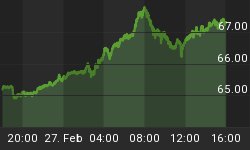There are only two reasons you should ever use a credit card if your goal is to someday be rich: cash-back rewards and convenience. That makes the ‘credit’ part of the card irrelevant—and that’s exactly what it needs to be if you hope to eventually obtain real wealth.
Word of the wise from a line-up of the wealthy, including self-made billionaire Mark Cuban, who admits he might have achieved his riches a lot earlier if he’d stayed away from the lure of the plastic.
Spending money you don’t have is the quickest way to avoid becoming wealthy. In other words, credit cards are the “worst possible investment you can make”, as Cuban once told Business Insider.
Credit cards represent an American extreme, with over $1 trillion in outstanding debt on revolving credit, nationwide.
Who holds that debt? Another extreme—the bulk of it is held by two groups, according to ValuePenguin: America’s poorest and its wealthiest. The average credit card debt for the zero-net-worth/negative-negative net worth group is over $10,300, while the average credit card debt for the households with over $500,000 in net worth is over $8,100.
The difference? Wealthy credit card debt holders tend to pay off their balances every month, while their poor brethren keep accumulating more debt and interest.
The wealthy view the credit card as a piece of plastic that simply replaces cash. The poor see it as a lifeline, even if it is a temporary one that leads to bankruptcy, or worse. Related: The Secret To China’s Tech Sector Boom
There’s another difference, too: Because plastic is all about convenience for the wealthy, they tend to stick to a single credit card instead of a wallet full of cards—each one paying off the other in an interminable spiral downwards.
It’s the discipline of the wealthy.
It’s also why Cuban says: "Cut up your credit cards. If you use a credit card, you don't want to be rich. The first step to getting rich requires discipline."
And while the perks of using credit cards are getting better and better (think: airline miles, cash-back rewards), you can’t enjoy them unless you’re paying your balance in full every month. Otherwise, interest overrides any potential perks—and that’s money that could have been invested.
But new research also shows that people tend to spend more money with credit cards than with cash. It’s called “decoupling”, and it’s a money pit in terms of the psychology of spending. Anything purchased with a credit card tends to be decoupled from emotion—which means that shoppers aren’t applying a rational cost-benefit analysis before buying. Parting with cold, hard cash is much more emotional.
Cuban isn’t the only one who warns about credit cards, even if he is the most extreme voice.
When you consider that 71 percent of Americans hold at least one piece of plastic, according to CreditCards.com, maybe it is, indeed, time to ditch credit cards, as Cuban suggests.
“Financial Samurai” Sam Dogen, a former Wall Streeter and executive director whose investments let him retire early, advises: “The secret is knowing that not even the great Warren Buffett has been able to make a consistent annual return of what the credit card companies charge on average”.
“As a result, credit card debt can end up crushing your finances over the long term. Take advantage of the credit card. Don’t let the credit card take advantage of you.”
In other words, take advantage of what Dogen calls “free 30-day credit”, but anything else means you lose—big; and that’s what the credit card companies are counting on.
By Josh Owens for Safehaven.com
More Top Reads From Safehaven.com:
















